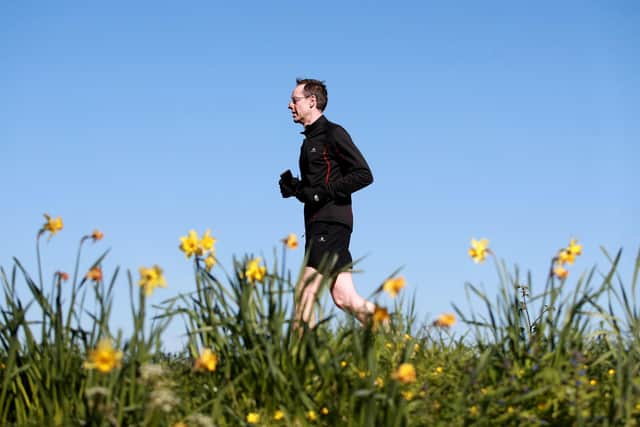Maintaining exercise in isolation can benefit immune system
and live on Freeview channel 276
Experts at the University of Bath say working out while following social distancing guidance will have a "tremendously positive effect" on people's health and wellbeing.
Their analysis found exercise can help the immune system find and deal with pathogens, as well as slowing down changes that happen to the immune system with ageing.
Advertisement
Hide AdAdvertisement
Hide AdThe team recommend 150 minutes of moderate-intensity aerobic exercise, such as walking, running or cycling per week.


Those whose capacity to exercise is restricted due to a health condition or disability should aim to move more and remember "something is better than nothing", researchers say.
They add that resistance exercise has clear benefits for maintaining muscles, which also helps movement.
Dr James Turner, from the Department for Health at the University of Bath, said: "Our work has concluded that there is very limited evidence for exercise directly increasing the risk of becoming infected with viruses.
Advertisement
Hide AdAdvertisement
Hide Ad"In the context of coronavirus and the conditions we find ourselves in today, the most important consideration is reducing your exposure from other people who may be carrying the virus.
"But people should not overlook the importance of staying fit, active and healthy during this period.
"Provided it is carried out in isolation - away from others - then regular, daily exercise will help better maintain the way the immune system works - not suppress it."
The analysis was published in the international journal Exercise Immunology Review.
Advertisement
Hide AdAdvertisement
Hide AdIn the work, researchers debated whether the immune system can change in a negative or positive way after exercise, and whether athletes have more infections that the general population.
They concluded the infections are more likely to be linked to factors such as diet, stress, sleep, travel and exposure to pathogens at group gatherings such as marathons.
Dr John Campbell, from the Department for Health at the University of Bath, said: "People should not fear that their immune system will be suppressed by exercise placing them at increased risk of coronavirus.
"Provided exercise is carried out according to latest Government guidance on social distancing, regular exercise will have a tremendously positive effect on our health and wellbeing, both today and for the future."
Advertisement
Hide AdAdvertisement
Hide AdThe researchers emphasised the importance of maintaining good personal hygiene when exercising, including thoroughly washing hands afterwards.
They suggest people also pay attention to the amount of sleep they get and maintain a healthy diet.